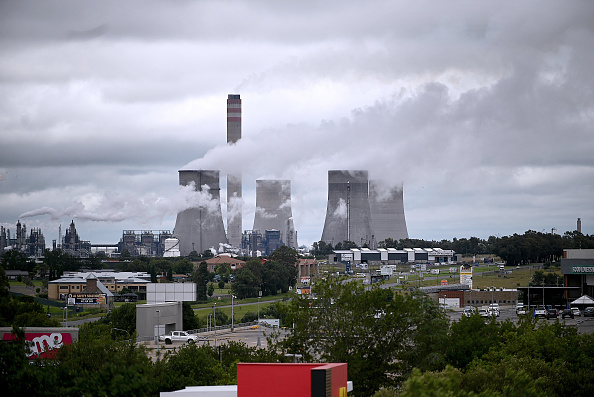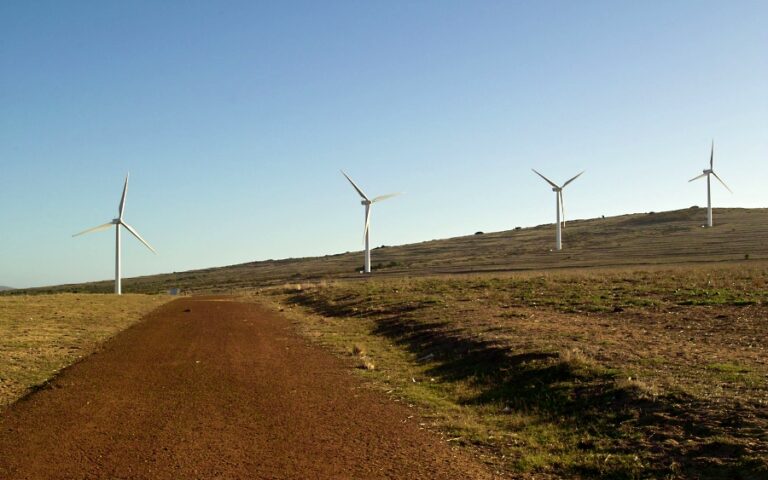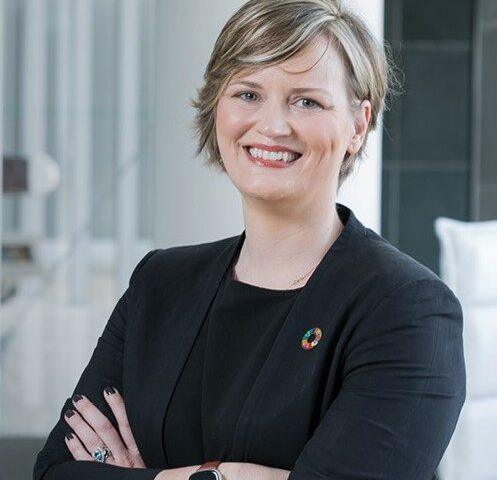On 15 September, FirstRand published an updated Policy on Energy and Fossil Fuels Financing (“the energy policy”) and, for the first time, a Climate Change Policy.
The energy policy represents a significant improvement on the bank’s previous energy-related policies – including confirmation that it will “no longer finance new coal-fired power stations with immediate effect”, and the acknowledgment of the material risk posed to the South African economy by “long term gas lock-in”.
One of the Paris Agreement’s three main goals is “to make finance flows consistent with a pathway towards low greenhouse gas (GHG) emissions and climate-resilient development”. FirstRand’s new policies confirm that reducing emissions from fossil fuels should be prioritised.
FirstRand states that it believes that “climate change is one of the defining issues of this century”, and that its policies are “anchored in science and data”. The bank recognises the centrality of climate science to informed financial decision-making, and the importance of a just transition to a low-carbon economy. FirstRand commits to update its policies regularly, to remain aligned with the latest developments.
However, some elements of the policies do not reflect the latest climate science, and appear to contradict the bank’s stated recognition of the urgency of taking action to tackle climate change.
Urgent action required this decade
There is overwhelming scientific consensus that action taken this decade will determine whether or not we are able to achieve the goals of the Paris Agreement. Financial institutions must rapidly limit their exposure to fossil fuels, and scale up and direct financing towards assets and investments necessary for transitioning to low-carbon, resilient and sustainable economies. FirstRand’s plan only to “[accelerate] its transition away from fossil fuels” in the 2040s, as part of its commitment to achieving the Paris goals, is not supported by climate science.
In August, the United Nations’ Intergovernmental Panel on Climate Change (IPCC) published the first part of its sixth assessment report, summarising the “physical science basis” for climate change. Relying on more than 14,000 peer-reviewed studies, the IPCC report provides new estimates of the chances of crossing the global warming level of 1.5°C (“more likely than not” by 2040, even in low emission scenarios), and finds that unless there are immediate, rapid and large-scale reductions in GHGs, even limiting warming to 2°C will be beyond reach.
The IPPC re-emphasises the findings of its “2018 Special Report on Global Warming of 1.5°C”: that GHGs must be reduced by almost half by 2030 to avoid the most severe impacts of climate change.
In May, the world’s most influential energy modelling agency, the International Energy Agency (IEA) published, for the first time, a “Net Zero by 2050” roadmap, which makes clear that “there is no need for investment in new fossil fuel supply in our net zero pathway”. The report confirms that, “beyond projects already committed as of 2021, there are no new oil and gas fields approved for development in the IEA’s net zero pathway”.
Coal
FirstRand has confirmed that it will no longer finance new coal-fired power plants “given the availability of cost effective and environmentally friendly alternative power sources”. This position is long overdue, but FirstRand is only the second of South Africa’s big five banks (after Nedbank) to make such a commitment. It is precisely this availability of cheaper and cleaner energy alternatives that makes the provision for 1500 MW of new coal-fired power in the Integrated Resource Plan (IRP) irrational.
FirstRand has also indicated that, as from 2026, it will no longer provide direct project financing for new coal mines. This is a year later than Nedbank, which has also completely excluded financing of thermal coal mines outside of South Africa.
Also from 2026, the bank will reduce the cap on its coal financing drawn advances from 2% to 1.5% of advances; and to 1% from 2030. Expressing these caps as percentages could result in a misleading impression of the bank’s exposure to coal; particularly given its intention to increase its financing of low-carbon technologies. The caps should be based on real-world emissions, rather than percentages of the bank’s exposure.
By accepting that coal will remain the country’s “core energy source” until 2049, FirstRand fails to demonstrate ambition that is commensurate with the urgency required to limit the worst impacts of global heating. This position is also not aligned with the expert input which the bank refers to in its energy policy, including the National Business Initiative (NBI)’s Just Transition and Climate Pathways Study for South Africa.
The NBI’s “Decarbonising South Africa’s Power SystemDecarbonising South Africa’s Power System” report considers two potential pathways to net zero by 2050: the “IRP constrained pathway”, with coal ramp-down in line with the IRP at the cost of higher emissions; and the “low emissions pathway”, with accelerated decommissioning of all coal by 2042. The report finds that the “low emissions pathway” would reduce GHGs by about one gigatonne, compared to the “IRP constrained pathway”, and has the potential to create about one million “net job-years” in the first 15 years, some 200 000 more than the “IRP constrained pathway”.
The IRP is not a least-cost energy plan, and does not take account of the latest data on costs and impacts of electricity choices, nor of the latest climate science. It includes 1500 MW of new coal-fired power and 3000 MW of additional gas-fired power, despite the availability of much less harmful and much more cost-effective renewable power. If FirstRand is relying on the NBI report, it should at the very least align its financing with its “low emissions pathway”.
FirstRand has indicated that it will focus on clients in the thermal coal sector who are “actively seeking to improve their environmental and social impacts in the context of the climate transition”. Just Share hopes that this is an indication of a shift in the financial sector towards placing meaningful transition-related conditions on the financing of existing thermal coal operations.
Oil and gas
FirstRand has added two circumstances in which it will not finance oil and gas projects, and has, without explanation, removed one exclusion (“unmitigated or unrestricted gas flaring”). The new exclusions refer to “unacceptably carbon intensive production”; and “high cost” developments that would have a “high carbon intensity and would be incompatible with the country’s Paris Accord obligations”. Without more detail and definitions, these vague exclusions are not useful.
The IEA “Net Zero by 2050” roadmap demonstrates that there is no carbon budget for new gas projects, and no time for a “gas bridge” in the power sector, either in advanced or emerging economies. Although FirstRand confirms that it is “studying the impact” of the IEA roadmap, it does not set any short-, medium-, or long-term timeframes to reduce its exposure to gas.
Instead, the energy policy indicates that a transition away from gas “will be necessary over the long-term”. The bank states that the “nature of transitioning away from natural gas and other fossil fuels will depend on the extent of technological advancement on carbon capture and storage and similar decarbonisation technologies”. The bank also seeks opportunities to help clients “fully decarbonise through carbon capture technology”.
Whilst carbon capture and storage (CCS) may be technically feasible, there are several unresolved problems with CCS, including uncertainty around long-term leakage, its high capital costs, and the long lead-time – possibly decades – before the technology could potentially be proven at the required scale. According to the Global CCS Institute, there are currently 23 carbon capture projects in construction or operation around the world, but the technology is still not commercially viable, and there have been a number of high-profile failures of these projects. For instance, Gorgon, the world’s largest CCS project – operated by Chevron Australia on behalf of partners including Shell and ExxonMobil – has failed to meet a single one of its targets.
Despite these concerns about the bank’s position in relation to oil and gas, Just Share commends FirstRand for taking a more nuanced approach to oil and gas than in its previous energy financing policy; and in particular for its recognition of the “material risk that long-term gas lock-in may pose to the South African economy”.
Net zero
FirstRand’s long-term ambition to “be net zero by 2050 for scope 1, 2 and 3 emissions” is laudable in its inclusion of scope 3 – its financed emissions. But this broad ambition falls short of a firm commitment, and puts the bank behind many of its peers who are already making more ambitious commitments. Nedbank’s energy policy, for example, commits to the bank having “zero exposure to all activities related to fossil fuels [except when required to back up renewable power] by 2045”.
In addition, it is essential that long-term ambition be accompanied by short-, and medium–term targets for reducing the bank’s financed emissions (including, as climate science demands, a 50% reduction by 2030), and meaningful exclusions for financing. Just Share looks forward to seeing more detail of the bank’s commitments and targets, in its forthcoming report in alignment with the recommendations of the Task Force on Climate-Related Financial Disclosures (TCFD).
FirstRand should ensure that it does not place over-reliance on the “net” aspect of net zero. Companies should reduce emissions as close as possible to zero: netting out emissions is only a last resort for those that cannot be abated. Unfortunately, companies tend to prefer the “net” part of the term, relying on negative emission technologies that do not yet exist other than in prohibitively expensive experimental forms.
Despite FirstRand’s indication that it will “regularly articulate updated decarbonisation commitments for its operational and financed emissions”, and that it will “incrementally publish more detailed financed emissions data and assumed transition pathways in its TCFD reports each year”, the bank’s new policies make no specific commitments or targets in relation to the reduction of its scope 3, or financed emissions.
FirstRand has indicated that its forthcoming TCFD report will provide “a more comprehensive view of FirstRand’s climate change strategy and initiatives, including its business commitments to the facilitation of sustainable finance flows, as well as granular information on the group’s climate risk profile and underlying operational and financed emissions”. This TCFD report will be an opportunity for FirstRand to address some of the gaps in its policies.






